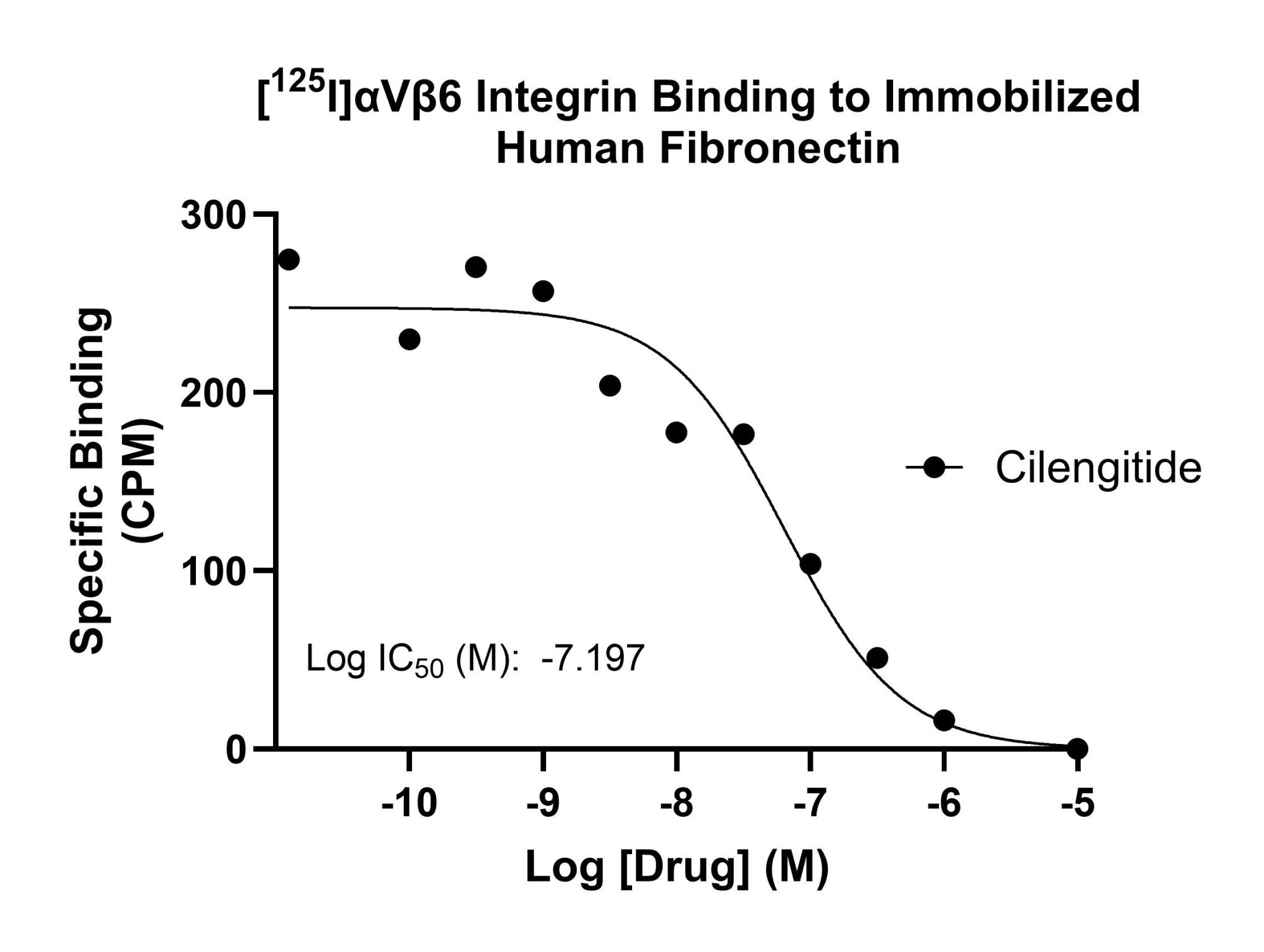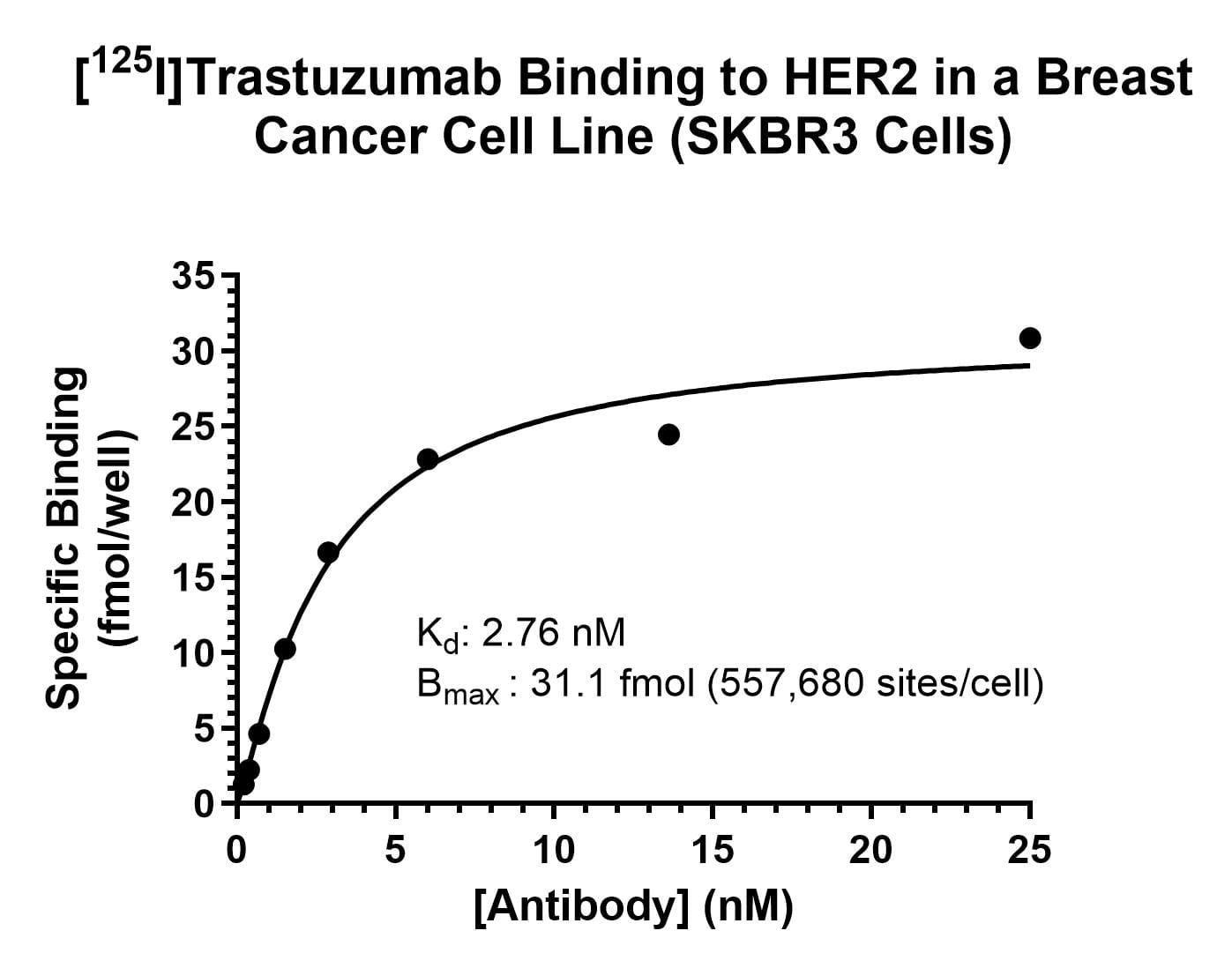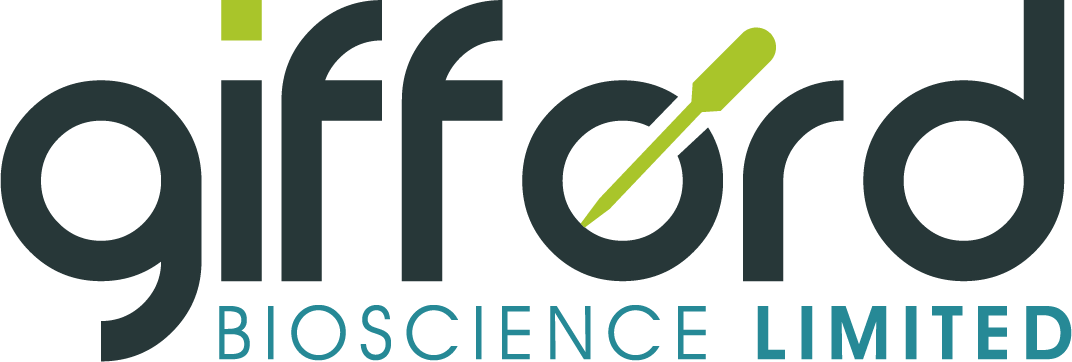Gifford Bioscience advances your oncology drug development with our expertise in specialist ligand binding techniques. We maintain a strong relationship with several tissue banks, including the Human Biomaterials Resource Centre here in Birmingham, to obtain solid tumor tissues of interest for your study, such as prostate, colon or lung tumor tissue, as well as healthy control tissue.
We evaluate the binding of your therapeutic compounds or radiotracers for imaging and the diagnosis of cancer, allowing you to study disease progression and detect biomarkers.
We also provide a cell culture service to grow your specific cell lines for analysis, or alternatively, utilize our in-house cell lines.
Case Study

Integrins, especially αvβ6, are upregulated in a wide range of solid tumours including breast, lung, and pancreatic cancers. Because αvβ6 is largely absent from healthy tissue, it is an ideal candidate for targeted therapies. The graph shows receptor quantification using a radio-iodinated ELISA, offering a highly specific and sensitive method to assess αvβ6 levels and support development of integrin-targeting diagnostics and therapeutics.

HER2 overexpression, shown through radiolabelled trastuzumab binding in SKBR3 breast cancer cells, remains a key biomarker in aggressive breast cancers. This assay quantifies receptor density and binding affinity, critical for validating targeted antibody therapies.
Radioligand Binding Assays determine the number of target binding sites (Bmax), drug affinity and inhibition (Kd, IC50, Ki) and binding kinetics (kon/koff) in in cell lines or tumor tissue. These assays are also used to identify suitable PET radiotracers.
Autoradiography and Receptor Occupancy visualise the tissue distribution of your target in tumor tissue and assess off-target binding.
SPR assesses binding affinity, inhibition (Kd, IC50, Ki) and kinetics of therapeutic antibodies to target of interest (kon/koff) and investigate protein-protein interactions.
Functional Cell Signalling Assays determine the physiological effects of your test compounds by measuring GPCR activation (GTPγS) and downstream signalling (cAMP, Ca2+, phospho-ERK assay) as a result of agonist, antagonist, or inverse agonist treatment (EC50, Emax, IC50). Our kinase assays assess targeted therapy development.
Radioimmunoassay and ELISAs monitor target expression, detect cancer markers using radiolabeled antibodies and determine concentration of targets upon drug treatment.
What our Partners say about Gifford Bioscience
From initial inquiry to project debrief, it’s our collaborative style that sets us apart. Our 100% PhD level scientists use their deep expertise to help you solve even the most complex of scientific challenges. Visit our testimonials page to see how our Oncology CRO services have helped our partners achieve quality outcomes in the development of their novel therapeutics.

Copyright © 2025 Gifford Bioscience Limited
Privacy Policy



